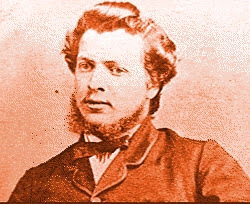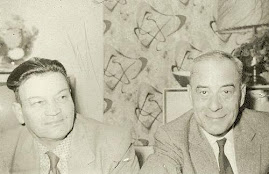This article is interesting to the Métis in the sense that the National definition has its’ own issues around interpretation. This is evident on how each governing member has taken a nationally accepted definition and have altered it by putting forward policies to interpret what they believe was the intent of the discussions and debate leading to the approval of the definition.
This has resulted in individuals who live in other provinces not being eligible for membership/citizenship in other governing jurisdictions. Some of those interpretations are a result of the very individuals that are being raised in the BC Courts. There are some provinces that have over many years accommodated the individuals who no longer apply for ‘Status’. This may have happened for many reasons – much of what I believe is a situation where individuals who have lost their place by racist, sexist government policies that have tried to assimilate Aboriginal people for centuries. The individuals who are of Aboriginal descent and have been displaced due to the Indian Act are attempting to maintain their – Aboriginal heritage. To fit within the definition of Aboriginal within the Canadian Constitution they need to fit within one of the three identified groups.
These issues are as old as life itself – nations of people – even though they are displaced from their lands – they don’t just stop being – because they have been bullied out of their inherent ethnic heritage. They don’t take on the ethnic being of another nation. All we need to do is look at the issues in the Middle East to see the centuries of war that resulted from individuals who do not assimilate or disappear.
There are more issues in the defining of the Métis that need resolution – but it should be the Métis that are setting the parameters. Many of the issues related to the definition would have been resolved if the work to come up with the National definition would have resulted in a National Registry that was coordinated amongst the various jurisdictions. It will be curious to see if the Government and Courts set us up to start dealing with the outstanding issues related to who is Métis – or if the courts and government get to set the parameters of what they think the membership is.
BILL CURRY
The Globe and Mail
April 13, 2009 at 8:39 PM EDT
OTTAWA — Parliament has less than a year to craft a new definition of “Indian” before Canadian native policy risks tumbling into chaos as the existing rules for determining native status are thrown out by the courts.
The clock is ticking after the B.C. Court of Appeal set the tight deadline for the minority Parliament. It's a ruling that has experts in native law scratching their heads, wondering how such a contentious issue can possibly be resolved in time.
Some lawyers say the ruling means hundreds of thousands of natives are now 12 months away from losing status entirely. Conversely, writing a new definition that complies with the Charter of Human Rights could mean a dramatic increase in the number of Canadians eligible for status.
“It's going to be a mess,” said Winnipeg lawyer Norman Boudreau, who represents natives living in Treaty 1 territory. “If you take that a step further, if you no longer have Indians, then some reserves will no longer be in existence because the reserves are set aside for Indians. So if there's no Indians any more, then the reserve itself falls by the side as well.”
Mr. Boudreau is among the many legal experts both outside and inside government currently grappling with the potential implications of this month's B.C. Court of Appeal ruling, in what is known as the McIvor case.
Mitchell Taylor, who represented the Crown in the case, disputes the interpretation of Mr. Boudreau and others. He said natives would not lose status if nothing happens by the deadline. However, new individuals would not be able to register if the definition was struck down, he said in an interview.
“That's obviously an unacceptable situation and something would need to be done,” he said. Mr. Taylor said there are several options available over the coming 12 months, including a request for a deadline extension, a new law in Parliament or a potential appeal to the Supreme Court.
A spokesman for Indian Affairs Minister Chuck Strahl said the government is considering its options.
The outcome will have a significant impact on native communities and families, who have long struggled with social divisions created as a result of the Indian Act's definition. The existing six-part definition is a complicated one, based on family ancestry as well as several side-arrangements.
An expansion of the definition would also have an impact on the public purse, as status Indians currently qualify for federal coverage of non-insured health benefits such as prescription drugs and can apply for postsecondary assistance.
In the case at hand, Sharon McIvor and her son Jacob Grismer claim that in spite of amendments made to the Indian Act in 1985 aimed at treating men and women equally, the act continues to discriminate against women. They point out that, unlike men, women cannot pass down status to their grandchildren in certain cases.
From 1868 until the Indian Act was amended in 1985, Indian women who married a non-Indian lost their status, while Indian men who married a non-Indian were able to keep their status and bestow status on their wives.
In a June of 2007 ruling, the B.C. Supreme Court agreed that the 1985 changes did not do away with all discrimination in the act. That ruling called for status to be extended to anyone who could show that somewhere in their pre-1985 ancestry a woman had lost status through marriage.
This month's B.C. Court of Appeal ruling said the lower court went too far, and that Parliament must fix only the problems with the 1985 amendment. However, Mr. Justice Harvey Groberman candidly wrote that he's not sure what MPs could have done in 1985 to fix the complicated definition.
“I am even less certain of the options that the government might choose today to make the legislation constitutional,” he wrote.
But while Judge Groberman's concerns appeared to be narrow, lawyers say they are surprised by his solution: striking down key parts of the act's definition of Indian within one year.
The 2006 census found 698,025 Canadians self-identified as “first nation,” a term used by people who are likely to have Indian status. However 1,172,790 describe themselves as aboriginal, which includes 50,485 Inuit, 389,785 Métis and first nation. An expanded definition of Indian status would likely incorporate some of the people who are Métis or aboriginal but do not currently qualify for federal services.
Statistics Canada also found that between 1996 and 2006, the aboriginal population grew by 45 per cent.
Tuesday, April 14, 2009
Clock ticking on legal definition of 'Indian'
Posted by
MetisMama
at
6:33 AM
![]()
![]()
Subscribe to:
Post Comments (Atom)





10 comments:
Gee what a wonderful idea, lets redefine what an "Indian" is!! Apart from being mislabled by a lost drunk Italian in the 15 century, we now have to have the federal government make for a peoples group a definition of who is and isn't a "First Nations, Indian, Native American, or any other name this group goes by"!!!
Here's an idea, why don't they all just become "Canadian" - live and act like "Canadians" Work hard - pay taxes and reap the benifits of contributing to society instead of sucking it dry with all their "entitlement" mentality.
No Reserves, no entitlements, just like everyone else in Canada that isn't "Indian"!!! Then there would be no reason for a definition, since everyone will be "EQUALY" Canadian.
Buts thats too easy and we'd all rather waste time and money on lawyers "defining" for everyone who these "peoples" are.
SO they can get their "Entitlements"!!
At the end of the day doesn't it come down to if the Metis cannot agree on a definition of who they are and transition that into a national registry the government will do it for them using the courts if necessary.
Shouldn't the Metis National Council be taking the leadership in establishing a National Metis Registry?
Sucking it dry? Frank, are you redeeming all the greedy corporations with this statement? I suppose you think 'our' people caused the worldwide recession too?
I like a lot of what our white brothers and sisters do too Frank, but I also see a lot of the destruction they leave in their wake; environmentally; economically and politically. Canada is one colossal fucking dysfunctional family, and the natives are the family scapegoat.
Is it possible to raise the quality of this discussion?
I want to believe. However the question is can I trust the system to achieve this?
Fox Mullder
Are you related to Special Agent Fox Mulder who spells his last name with only one "l?"
Words can be fun huh? The pen has more might then the sword.
Fox Mulder
I want to believe!
the already existing definition of "indian" is one that is not mentioned. the privy council knows exactly what it means but are not willing to let the definition be known. as for people saying that indians are sucking dry tax dollars, the truth about it is that there is enough working indains within canadian society to pay for their owns peoples welfare. legally like dr martin luther king said how can a minority be part of a civilized nation and it is true if you know the law. i am an indian and i know world laws. brian mulrony himself said that the canadian constitution is worth less than the paper it is written on.
indian is a word that is derived from a much older language. it already has a legal definition known by the privy council. when you want to get into legal terminology, the white race is also legal terminology and i know how that came about but don't have time to type out the actual history of the terminologies. and even how corpis juris secundom came into effect and how. nobody even realizes how law affects their everyday lives, theres even laws under corpis juris secundum for being a race and for nations to put in an application to be a race. there is ancient law and the beautiful law can never age and can be stopped by another law. so when the legal definition of indian comes about there is going to be a big change in the world because no one knows who they truly are or who they were truly meant to be...and it is not no slave for some wealthy person. p.s. person is also legal terminology which the meaning is far more than what is said or known
Post a Comment